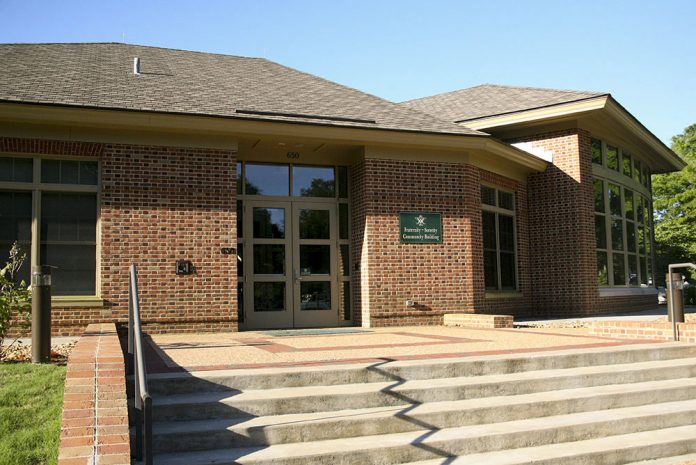At the beginning of this semester, the national organizations of Delta Phi Omega Sorority and Phi Kappa Tau fraternity announced that their respective chapters at the College of William and Mary would close. According to an email from the Office of Student Leadership Development, Delta Phi Omega Sorority announced their decision Aug. 19, while the Phi Kappa Tau national organization notified Fraternity & Sorority Life staff of their decision Sept. 5.
Co-Assistant Director for Student Leadership Development Anne Strickland said these closures were the result of a complicated decision-making process.
“These are not decisions that national organizations take lightly,” Strickland said. “There’s a lot of thought that goes into it.”
“These are not decisions that national organizations take lightly,” Strickland said. “There’s a lot of thought that goes into it.”
Delta Phi Omega Sorority is a South Asian–interest and multicultural sorority that started a chapter at the College in fall 2016. The chapter was part of the William and Mary Multicultural Greek Council until the Beta Delta Chapter of Hermandad de Sigma Iota Alpha was suspended and the MGC was subsequently disbanded.
According to the chapter’s website, their philanthropic work focused heavily on children’s education and literacy. This included volunteer work with She’s the First, which is a non-profit organization designed to fight gender inequality through education around the world. The chapter also sponsored activities like letter-writing workshops for hospitalized children and a bake sale intended to raise money for Save the Children Syria.
Chandni Nigam, the National President of Delta Phi Omega Sorority, said that the process of closing the College’s chapter began in summer 2019.
“This process consisted of evaluation and assessment of the current state of the colony,” Nigam said. “We had to consider our resources in the area and if it was something we could sustain at the moment.”
According to Strickland, the national organization ultimately decided to close the chapter following low recruitment numbers and reduced chapter operations. At the time of the decision, Delta Phi Omega had only two active members at the College.
Phi Kappa Tau’s closure comes following a turbulent history at the College. The chapter has had its charter revoked by the national organization twice, first in 1981 and again in 2012 before returning to campus in 2015. This iteration of Phi Kappa Tau hosted several philanthropic events including a fried Oreo sale called “Fry Tau,” a quesadilla delivery service called “Phi Kappadillas” and games of archery tag. Their philanthropy benefited SeriousFun, a network of summer camps and programs catering to the needs of children with terminal illnesses and disabilities.
Brighten Meade ‘21 joined the chapter in 2017 and was elected president in 2018, a position he will hold until the fraternity’s official closure. Meade said that he and the other members of the chapter initiated the shutdown process after being informed by the national organization that dues would be raised from about $400 to nearly $1,000 per semester. This, coupled with the chapter’s low recruitment for its executive board, eventually brought Meade’s frustration to a tipping point.
“Given the incredible lack of support they provided the colony for the few years of its existence, it made no sense to any of us to continue paying into an organization that had clearly left us by the wayside a long time ago,” Meade said. “The closure was purely over the predatory nature of their financial structuring … I couldn’t in good conscience keep going, and none of my brothers could either.”
However, according to Strickland, these closures do not signify that the College’s Greek Life is slowing down. She referenced Alpha Sigma Phi fraternity’s upcoming establishment at the College in spring 2020 as a sign that the College still has room for more Greek organizations during the final stages of IFC’s multi-year expansion plan.
Strickland said that while the College aims to provide tools necessary for organizations, it is their responsibility to recruit members.
“We can give you the tools and we can try and help you be successful, but at the end of the day student organizations are responsible for recruiting people,” Strickland said.
Meade shared a similar sentiment, expressing that leadership and student organization are both imperative in creating sustainable chapters.
“I’m going to place the blame squarely on our former nationals,” he said. “The quality of leadership in any organization is make or break, and unfortunately in our case it broke us before we got a chance to succeed.”
Despite their closures, the organizations’ leadership members are optimistic about the prospects of their chapters potentially returning to campus.
“I do see Delta Phi Omega coming back to W&M in the future,” Nigam said. “We are extremely sad that we needed to proceed with having the colony go inactive.”
“I do see Delta Phi Omega coming back to W&M in the future,” Nigam said. “We are extremely sad that we needed to proceed with having the colony go inactive.”
As for Phi Kappa Tau, Meade is proud of the work members put into the organization.
“I’m proud of the guys I recruited and worked hard with until the end,” said Meade.
“I’m proud of the guys I recruited and worked hard with until the end,” said Meade.

